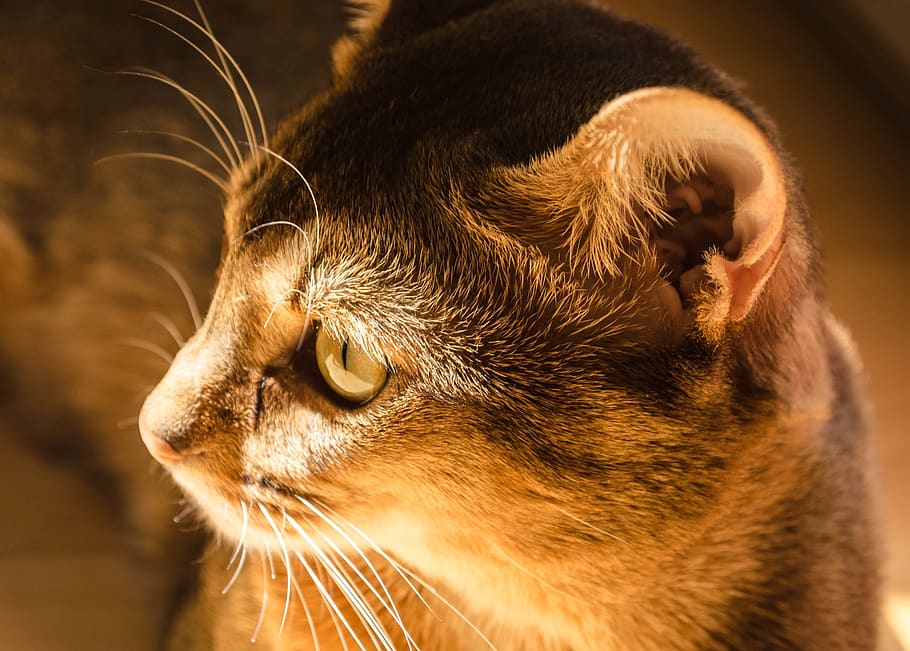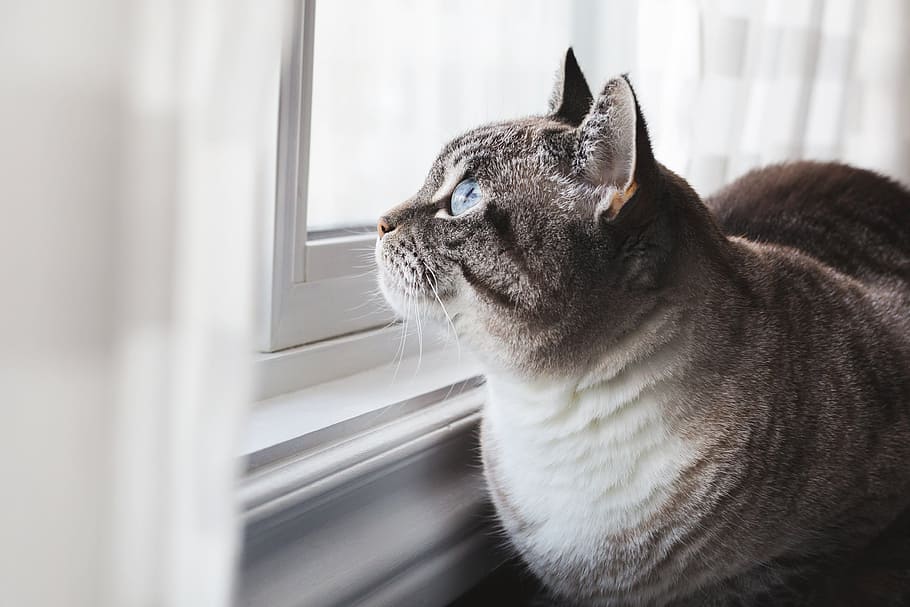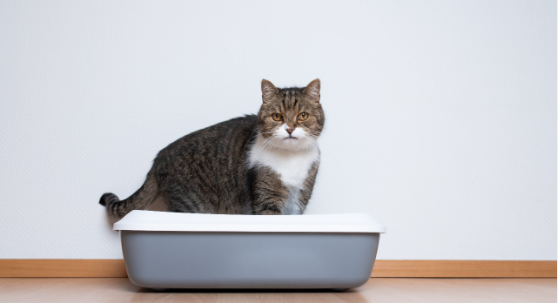What is the average IQ of a cat?
Cats have a reputation for being independent and mysterious creatures, but how smart are they really? It’s a common misconception that cats aren’t intelligent, but in reality, felines possess a level of intelligence that is often underestimated. In this article, we will explore the topic of cat intelligence and answer the question: what is the average IQ of a cat?
Explanation of What IQ is
IQ stands for Intelligence Quotient, which is a score derived from standardized tests designed to measure an individual’s cognitive abilities. These tests typically evaluate skills such as problem-solving, critical thinking, memory retention, and analytical reasoning. The average IQ score for humans is 100 with a standard deviation of 15.
It’s important to note that while intelligence tests are commonly used for humans, there are also methods used to assess the cognitive abilities of animals such as cats. Animal IQ tests are designed to evaluate things like problem-solving skills and memory retention in order to determine an animal’s level of intelligence.
Brief Overview of Cat Intelligence
Cats have been domesticated for thousands of years and have developed unique behavioral adaptations that allow them to live alongside humans. Despite their reputation for being aloof or disinterested in human interaction, cats possess complex social behaviors and communication styles.
Research has shown that cats have impressive sensory abilities that allow them to navigate their environment with ease. For example, cats have exceptional hearing abilities and can detect sounds at frequencies ranging from 45 Hz up to 64 kHz – compared to humans who can only hear sounds between 20 Hz and 20 kHz.
In addition to their sensory capabilities, studies have also shown that cats possess problem-solving abilities comparable to those seen in some primates. This suggests a high level of cognitive ability beyond what many people assume about these animals.
Thesis Statement: Despite Popular Belief, Cats Do Possess a Level of Intelligence and Have an Average IQ Score
Despite the popular belief that cats are not intelligent animals, research shows otherwise. Cats possess complex social behaviors, sensory abilities, and problem-solving skills that demonstrate a level of intelligence comparable to other highly-regarded animals such as primates.
In the following sections, we will explore how cats’ cognitive abilities are measured and examine the factors that can impact their overall level of intelligence. By the end of this article, you will have a better understanding of what constitutes cat intelligence and what an average cat IQ score might look like.
Understanding Cat Intelligence
Cats are often thought of as aloof and independent creatures with little in the way of intelligence, but this is far from the truth. Domesticated cats have been bred for millennia to be companion animals, and as such they have developed a set of unique cognitive abilities that allow them to interact with humans and their environment in sophisticated ways.
Cat intelligence can be broken down into several categories, including perception, memory, problem-solving ability, and social skill. In terms of perception, cats have incredible senses that allow them to navigate their environment effectively.
Their hearing is particularly acute and they are capable of picking up on sounds that humans cannot hear. In terms of problem-solving ability, cats are known for their cleverness and ingenuity.
They are adept at finding ways to get what they want – whether it’s opening a door or accessing a high shelf. In one study published in the journal Animal Behaviour, researchers found that cats were able to solve complex puzzles involving levers and doors in order to access food rewards.
Comparison to other animals’ intelligence levels
When it comes to animal intelligence rankings, cats often fall somewhere in the middle. While they may not be able to perform tasks as complex as those accomplished by primates or dolphins, they are certainly more intelligent than many people give them credit for. One factor that sets cats apart from other animals is their independent streak.
Unlike dogs, which have been bred for centuries specifically for companionship and obedience training, cats retain much of their wild instinct and behavior even when domesticated. This means that while they may not always follow commands or behave predictably as dogs do, they are still capable of exhibiting impressive problem-solving skills when motivated by curiosity or hunger.
Explanation of how cat IQ is measured
Measuring cat intelligence can be a tricky business, and there are many different ways to go about it. One common method involves using standardized IQ tests similar to those used on humans.
These tests usually involve assessing a cat’s ability to solve puzzles or navigate mazes, as well as their ability to learn and remember new information. Other methods of measuring cat intelligence involve observing their behavior in everyday situations.
For example, researchers may look at how cats interact with toys or how quickly they can learn new tricks through positive reinforcement training. While these methods may not be as precise as standardized IQ tests, they still provide valuable insights into the unique cognitive abilities of felines.
Average Cat IQ Score
When it comes to measuring the intelligence of cats, the concept of an IQ score is a bit controversial. Unlike humans, cats don’t take standardized tests to assess their cognitive abilities. However, researchers have conducted several studies to determine a range of average IQ scores for cats based on their problem-solving abilities and memory retention.
Research studies on cat intelligence
One such study conducted in 2017 by researchers at Kyoto University in Japan, tested the problem-solving abilities of domestic cats. Researchers presented the cats with a box containing food that could only be accessed through the manipulation of a string. The results showed that about half of the tested cats were able to successfully solve the puzzle and access the food.
Another study conducted by researchers at Oregon State University in 2020, investigated how well cats can remember information over time. The study found that when presented with two identical objects and then later shown one object paired with a different object, approximately 70% of tested cats were able to recognize and choose the novel object.
The average IQ score range for cats
Based on these and other similar studies, researchers have estimated that on average, adult domesticated cats have an IQ score range between 30-40. To put this into perspective, dogs typically have an average IQ score range of 50-60.
It’s worth noting that these estimates are just that – estimates – as measuring intelligence in non-human animals is still relatively new territory for scientists. Additionally, some factors can affect an individual cat’s cognitive abilities.
Factors that can affect a cat’s IQ score
Genetics likely play a role in determining feline intelligence levels as certain breeds are known for being more intelligent than others – such as Siamese or Sphynx breeds which are often touted as “smart” breeds. Environmental factors also play an important role in feline cognitive development. Cats raised in enriched environments with regular socialization and stimulation have been shown to develop better problem-solving abilities compared to those raised in more barren or isolated settings.
Like humans, training and experience can improve a cat’s intelligence. Regular training sessions that challenge the cat’s problem-solving abilities can help improve their IQ score over time.
Factors Affecting Cat Intelligence
Cats, like humans, are not born with a predetermined level of intelligence. Their cognitive abilities are shaped and influenced by a wide range of factors that can affect their overall IQ score. Some of the most significant factors that influence cat intelligence include genetics and breed differences, environmental stimuli, and training/socialization.
Genetics and Breed Differences in Intelligence
Research studies have suggested that genetics play a critical role in determining feline intelligence. Certain breeds of cats have been found to be smarter than others due to genetic differences in brain structure and cognitive functioning. For example, the Siamese cat breed has been found to be one of the most intelligent feline breeds due to its unique genetic makeup.
It is important to remember that not all cats within a specific breed will exhibit the same level of intelligence. Genetics only provides a foundation for potential cognitive abilities; environmental factors also play an essential role in shaping cat intelligence.
Environmental Factors That Can Impact a Cat’s Cognitive Development
The environment in which a cat grows up can significantly impact its cognitive development. Studies have shown that cats raised in enriched environments with plenty of stimuli tend to perform better on cognitive tasks than those raised in impoverished environments without any environmental enrichment.
Factors such as diet quality, social interactions with humans and other animals, access to physical activity/mental stimulation toys, and overall living conditions can also impact feline cognition development. As such, it is crucial for pet owners to provide their cats with an environment that promotes mental stimulation and encourages healthy habits.
Training and Socialization Effects on a Cat’s Intelligence
Training methods commonly used on dogs can also improve the cognitive abilities of cats when implemented correctly. Training techniques such as positive reinforcement have been found effective for improving feline problem-solving skills as well as other areas where they might otherwise be deficient. Socialization is also essential for cats, as it helps them develop social and communication skills that can enhance their intelligence.
Regular interactions with humans and other animals can help cats develop more complex social behaviors and increase their overall intelligence levels. It is critical to understand the various factors that influence feline intelligence.
Genetics, environmental factors, and training/socialization all play important roles in shaping a cat’s cognitive abilities. By providing an enriched living environment, engaging in positive training and socializing practices, and understanding breed-specific traits, pet owners can do their part to promote the development of intelligent cats.
Conclusion
Understanding Feline Intelligence
It is clear that cats do possess a level of intelligence that is often underestimated. While their cognitive abilities may not be on the same level as dogs or other domestic animals, research has shown that cats are able to problem-solve, learn from experience, and even understand certain human words and gestures. Despite popular belief, they have a range of skills that make them unique and fascinating creatures.
The Importance of Understanding Feline Cognition
It is important for cat owners to understand their pets’ level of intelligence so they can provide the appropriate stimulation and training to keep them mentally healthy. By recognizing their cognitive abilities, owners can help foster their cats’ unique personalities and strengthen the bond between pet and owner. Additionally, understanding feline cognition may also lead to further scientific breakthroughs in animal intelligence research.
While the average IQ score for cats may not be as high as some other species, it is important for us to recognize that these creatures possess a level of intelligence worth exploring. With proper care and attention to their mental health, our feline companions can live happier and healthier lives alongside us




